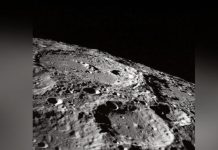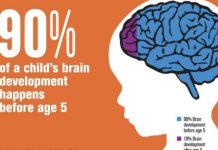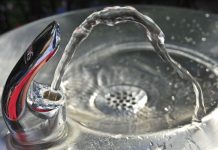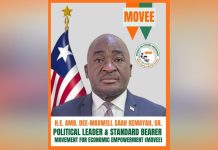
Africa-Press – Liberia. The National Fisheries and Aquaculture Authority is strongly defending its decision to explore new opportunities including the conducting of experimental shrimp fishing in a bid to revert to the era of the 1970s when shrimp contributed at least US$40 million per annum.
NAFA’s statement comes barely 24 hours after a Belgian-based Non-Governmental Organization, The Coalition for Fair Fisheries Arrangement (CFFA) issued a report taking Liberia to task for breaching its own fisheries law.
Said the report: “The Liberia Fisheries Law of 2019 does not provide for experimental fishing, but only for research fishing for scientific purposes. “This research fishing is subject to a series of conditions. Thus, any person requesting authorization to undertake this type of fishing must submit a detailed research plan for the duration of the fishing operation or related activities.”
Contacted Tuesday, NAFA, in a written response to FrontPageAfrica said its decision stemmed from the fact that the shrimp fisheries market have been dormant over the last forty years since 1970s, when Liberia had at least thirty (30) trawlers fishing for shrimp to export to international market such as Japan, USA and other countries. “In an effort to explore new opportunities, NaFAA management made a decision to conduct experimental shrimp fishing so as to revert to the era of the 1970s when shrimp contributed at least 40M per annum. Also, we even engaged one our partners which is the World Bank to sponsored same activities considering the financial risk associated with such activities,” NAFA said.
According to the report, within the last month alone, trawlers of Spanish origin, registered in Senegal, received an experimental fishing temporary authorization to fish Liberian deep-water shrimp, through the Senegal-Liberia bilateral agreement. “In both cases, the vessels are fishing intensively in specific locations, causing concern about the impact of this fishing on fragile resources,” the report noted.
The report citing scientist Ad Corten, an expert on small pelagic fisheries said: “Everyone understands what is meant by experimental fishing. “It is the use of commercial fishing vessels to explore the possibilities of a new fishery; that is, a fishery for a known species in a new area, or a fishery for a new species in a known area. Such an experiment should be small-scale and of limited duration to avoid negative effects on other species, or on the stock of the species under study. The experiment must be planned and closely controlled by scientists.”
The shrimp fisheries have been dormant over the last forty years since 1970s, when Liberia had at least thirty (30) trawlers fishing for shrimp to export to international market such as Japan, USA etc. Moreover, in an effort to explore new opportunities, NaFAA management made a decision to conduct experimental shrimp fishing so as to revert to the era of the 1970s when shrimp contributed at least 40M per annum. Also, we even engaged one our partners which is the World Bank to sponsored same activities considering the financial risk associated with such activities.
– National Fisheries and Aquaculture Authority
While there is no clear definition at the FAO level for this type of fishery, the report noted that some regional fisheries organizations, such as the Commission for the Conservation of Antarctic Marine Living Resources (CCAMLR), specify that experimental fisheries are fisheries for which it is necessary to collect sufficient information to assess the distribution, abundance and demography of the target species, thereby enabling the potential yield of the fishery to be estimated; to examine the potential impacts of the fishery on dependent and related species and to enable the Scientific Committee to formulate and provide advice on appropriate catch and effort levels and fishing gear.
Clearly, according to the report, the aim of experimental fishing is scientific. But is it always so, like in the case of the Senegalese boats in Liberia?
The Senegal-Liberia Fishing Agreement
In 2019, Liberia signed a fishing agreement with Senegal, allowing access of Senegalese artisanal, semi-industrial and industrial vessels to Liberian waters. “For industrial fishing, the agreement includes access for 2,000 GRT (up to 5 trawlers of 250 GRT each).”
According to the report, the Liberia Fisheries Law of 2019 does not provide for experimental fishing, but only for research fishing for scientific purposes (Part 3 – section 10.24 Conditions for research fishing). “This research fishing is subject to a series of conditions. Thus, any person requesting authorization to undertake this type of fishing must submit a detailed research plan for the duration of the fishing operation or related activities: “No research fishing authorization shall be issued without such a plan having been submitted to and approved by the Director General.” In addition, “each research fishing authorization shall be subject to the embarking of at least two Liberian scientists or observers for the duration of the research at the expense of the person to whom the authorization is granted.”
The report further noted that the results of the research and the raw data must be provided to the Director General within a specified time period in consultation with the researchers. “The authorization must be consistent with any relevant fisheries management plan and the law also suggests that the authorization should be subject to “a requirement for the holder to undertake an environmental impact assessment of the research”.
The report further states that experimental fishing is however mentioned in the protocol of the 2019 Senegal-Liberia bilateral agreement. “Article 3.7 states that these fishing opportunities “shall be considered as experimental fishing until such time as the stock assessment makes it possible to know the potential. Observer coverage must be 100% for trawlers”.
According to the report, the retail price of Carabineros, the largest prawn in the world, can be up to 80USD per kilo, although it is difficult to estimate the free-on-board value. “The amount paid by the operators to the Liberian government will depend on the captures declared.”
Delimiting Territorial Sea
In terms of fishing zone, the report notes that the Liberian Fisheries and Aquaculture law clearly states the limit of the coastal exclusion zone, reserved for artisanal fishing, which is “up to a distance of 6 nautical miles from the baselines used to delimit the territorial sea”. However, the same text allows, in section 4.3 on the inshore exclusion zone, “industrial shrimp, cephalopod and other vessels fishing for inshore species to trawl beyond 4 nautical miles”.
The report also noted that under the Senegal-Liberia Agreement, two Senegalese flagged trawlers, the SOKONE and the KANBAL III, belonging to the Senegalese company SOPERKA, which is part of the Grupo Pereira from Vigo (Spain), have received temporary authorization for experimental fishing in Liberian waters. “These trawlers are bottom trawlers, each almost 40 metres long. Data collected on Global Fishing Watch show that they trawled extensively, on deep water reefs, in July and August 2021. The KANBAL III was suspected in 2017 of reducing the opening of the meshes in the net, a technique that makes trawling less selective, although Senegalese authorities did not arrest the vessel in the end.
The report further states that on September 11, 2021, a third vessel, EL AMINE, also part of the SOPERKA fleet, arrived from Dakar and began trawling on the same reef as KANBAL III.
Said the report: “One would expect that vessels engaged in experimental fishing designed to gather information on the sustainability of the operation would themselves be committed to sustainability. One might wonder about the KANBAL III, which was singled out in 2017 because there were indications that the vessel had used a technique to reduce the opening of the meshes in the net, making its trawling even less selective. At the time, Senegalese authorities did not see fit to arrest the vessel, promising further investigations.”
According to the report, another reason for concern is that, so far, neither the KANBAL III, the EL AMINE or the SOKONE have entered the port of Monrovia. “Indeed, a good way for a country to control the catches made in its waters is to inspect the vessel upon its arrival in port. The conditions of the experimental fishing authorization provide for this to be the case, unless the port in Liberia is not operational to receive the landing of catches taken by industrial fishing vessels. In that case, the license expressly states that the landing shall be made in Senegal.”
The report also pointed out that the economic benefit of the deal is below expectations for Liberia. “These powerful trawlers operate on the Deepwater reefs off Greenville for a valuable resource, the Deepwater red shrimp (known as Carabineros in Spain), the largest prawn in the world. The free-on-board value of Carabineros is difficult to estimate, but the retail price can be as high as $80 per kilo.”
“The
Liberia Fisheries Law of 2019 does not provide for experimental fishing, but only for research fishing for scientific purposes (Part 3 – section 10.24 Conditions for research fishing). This research fishing is subject to a series of conditions. Thus, any person requesting authorization to undertake this type of fishing must submit a detailed research plan for the duration of the fishing operation or related activities.”
– The Coalition for Fair Fisheries Arrangements (CFFA), A Belgian-based NGO
Profits Based on Catch
Under the Senegal-Liberia agreement, the report notes that the operators of the trawlers, which do not land any catches in Monrovia, are required to pay 10 per cent of the ex-vessel value of the fish caught. “The amount paid will depend on the catches declared by the captain and the values realized by the operators. It needs also to be noted that, thanks to the experimental fishing authorization they have, the operators avoid paying the 10% export tax that would be due if they had a regular license. The only verification of catches is by a single observer on board, – which falls short of what the Liberian law requires for research fishing. In the absence of actual independent verification of catch reports, regardless of the port where the catch is offloaded, and with Liberia foregoing the export tax revenue, the economic benefits that can be realized by Liberia are probably below expectations for the exploitation of such high value resource.”
The report says such a trend could change in the future, as on October 19, Liberia signed a financing agreement with the World Bank for the Liberia Sustainable Management of Fisheries project, worth US$ 40 Million. “Through this agreement, it is expected that the completion of the Mesurado Pier into an industrial port will allow more than 77 industrial fishing vessels to land their catches in Liberia. Madam Emma Metieh Glassco, Director general of the National Fisheries and Aquaculture Authority (NaFAA), said the three times expansion of the Mesurado Pier will lead to the creation of huge job opportunities for Liberia and Liberians, provide huge supply of fish on Liberian markets at a cheaper rate, reduce the net importation of fish. However, for the time being, the multi-million dollars profits from the Deepwater shrimp catches are almost entirely lost to Liberia.”
The report also raised doubts about the scientific value of this experimental fishery. “The methods of payment are not specified in the experimental fishing authorization. Moreover, in contravention of the conditions set for research fishing in Liberia, the operations of the trawlers targeting deep water shrimp have not been subject to a research plan, and thus the data to be collected is not defined. There is also no plan for communicating the results of the research, and there is no specification of the environmental impacts to be monitored in the license conditions. In summary, the activities of these vessels in Liberian waters are not transparent, and it is highly unlikely that they will produce useful data for resource assessment.”
NAFA ON THE DEFENSE
Providing clarity, NAFA, in a statement to FrontPageAfrica Tuesday acknowledged that it had granted the Senegalese trawlers authorization to conduct experimental fishing which is backed by a Memorandum of Understanding (MoU) for a period of 18 months but with a six-month renewable authorization for each vessel.
Said NAFA: “This MoU is supported by an approved Experimental/ Research Fishing Plan. However, certain provisions within the MoU provides that at any given time where NaFAA establishes that it has acquired sufficient scientific data representative of the fisheries, it shall not hesitate to terminate the MoU. The shrimp fisheries have been dormant over the last forty years since 1970s, when Liberia had at least thirty (30) trawlers fishing for shrimp to export to international market such as Japan, USA etc. However, there is no data indicating where the shrimps were harvested and whether it is commercially viable. Moreover, in an effort to explore new opportunities, NaFAA management made a decision to conduct experimental shrimp fishing so as to revert to the era of the 1970s when shrimp contributed at least 40M per annum. Also, we even engaged one our partners which is the World Bank to sponsored same activities considering the financial risk associated with such activities.”
The NAFA statement however said that a fishing company named SOPERKA a Senegalese Company which had been operating in Liberia for more than four years in Tuna Fishing, volunteered to participate at no cost although NAFA.
The company, according to NAFA had secure funding from the World Bank for same activities, with the understanding that the export fee stipulated in the Second Schedule of the 2020 Fisheries and Aquaculture Regulations will be paid on every fishing trip for resources harvested considering it’s an experimental fishing and not the standard shrimp licensing program. “The vessels are monitored by multiple oceans viewing software (VMS, AIS, Sea Vision, CLS) and there are fisheries observers deployed just as every other licensed fishing vessel in Liberia with a particular requirement for reporting from the vessel just as every other licensed fishing vessel. The fisheries observer deployed on these vessels report daily using mobile app to the Department of Research and Statistics at NaFAA. These are all mechanisms to enable NaFAA management to make an informed decision on the reopening of the Shrimp program.”
In Full Compliance, NAFA Says
Considering that Liberia has the second largest coastline within the subregion of 578km, and consistent with the fishing plan; NASA explains that the vessel will have to fish for more than one trip in a particular fishing zone and taking rainy and dry seasons so as to ascertain the level of stock per individual species. “So far to our record the Vessel has fished only thrice in that fishing zone located at Greenville, Sinoe County at the 22 nautical miles limit with a total catch harvest of at least 142 tons since the last six months. This possess absolutely no threat to the marine ecosystem nor threaten coastal livelihood as it above the six nautical miles limits which is solely reserved for artisanal fishing operations. Furthermore, consistent with the Fisheries Laws of Liberia, shrimp vessels not more than 27m can operate within the 4 nautical miles limit and above.”
NASA said with special concerns on the deployment of scientific observers, it is in full compliance with the Fisheries 2019 Law which states that: “For each fishing vessel depending on the gross tonnage, it shall have at least one scientific observer per vessel, nevertheless, to add to this, NaFAA also have fisheries inspectors deployed at each landing sites to monitor every landing. Liberia remains conscious of overexploitations of its resources, and as such ensure the necessary mechanisms are employed to develop and manage its fisheries. Liberia is also conscious of organizations and bloggers will sensationalize stories to attract international relevance. However, Liberia remains steadfast in its developmental principles, and shall not compromise international best practices at the detriment of its citizens.”
For More News And Analysis About Liberia Follow Africa-Press





